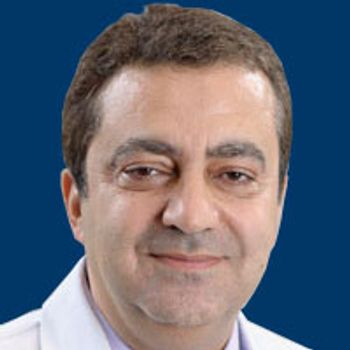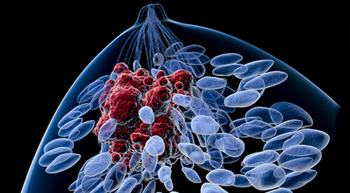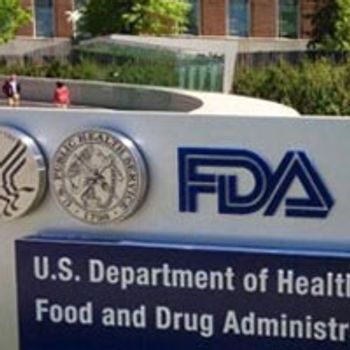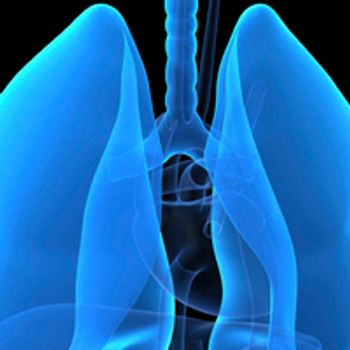
A collaborative patient reported outcome (PRO)-based care approach resulted in better outpatient symptom management and a decrease in end-of-life hospitalizations and costs for late-stage cancer patients.

A collaborative patient reported outcome (PRO)-based care approach resulted in better outpatient symptom management and a decrease in end-of-life hospitalizations and costs for late-stage cancer patients.

The FDA granted nivolumab (Opdivo) accelerated approval for the treatment of patients with classical Hodgkin lymphoma (cHL) that has relapsed or progressed after autologous hematopoietic stem cell transplantation (HSCT) and posttransplantation brentuximab vedotin (Adcetris).

Results of a new study show that women who typically slept less than the recommended 7 hours per night and were frequent snorers in the years before their cancer diagnosis experienced a poorer prognosis.

A retrospective analysis conducted by researchers at Kaiser Permanente and UCLA has concluded that patients with breast cancer treated with aromatase inhibitors (AIs) as adjuvant endocrine therapy were at equal risk of serious cardiovascular disease (CVD) events as those treated with tamoxifen.

The topic of sex is often difficult to discuss. Yet for many patients with cancer and survivors, sexual dysfunction is a widespread and unfortunate reality of their cancer treatment.


The FDA is getting praise from oncology groups for its landmark decision to regulate electronic cigarettes, cigars, hookah tobacco, pipe tobacco, and other electronic nicotine delivery systems (ENDS).



Theresa Brown, PhD, BSN, RN, began her professional career as an English professor, but changed direction when she returned to school to study nursing.

Although androgen deprivation therapy (ADT) has a survival benefit for patients with high-risk and locally advanced prostate cancer, it is associated with substantial safety concerns, and mixed data exist regarding whether ADT causes clinically significant depression.

The US Congress passed the Agent Orange Act of 1991 to address whether exposure to herbicides, such as Agent Orange, contributed to long-term health effects in Vietnam veterans.

A study of more than 2400 women with early-stage breast cancer has found that those who fasted 13 hours or more at night reduced their risk of breast cancer recurrence, findings that suggest prolonging the nightly fasting interval may offer a relatively safe nonpharmacologic way for women with early breast cancer to lower their risk of disease recurrence.

A retrospective analysis conducted by researchers at Kaiser Permanente and UCLA has concluded that patients with breast cancer treated with aromatase inhibitors (AIs) as adjuvant endocrine therapy were at equal risk of serious cardiovascular disease (CVD) events as those treated with tamoxifen.

An intervention specifically aimed at reducing the trauma and anxiety that often comes with parenting a child undergoing hematopoietic stem cell transplant proved especially helpful for parents during the time of the actual transplant and subsequent hospitalization.

The FDA has approved cabozantinib as a treatment for patients with advanced renal cell carcinoma who have received prior antiangiogenic therapy.

In order to give life to a strategy, a nurse leader must understand the clinical environment and how patients and staff respond to various interventions.


Chest radiation to treat a pediatric cancer is a well-known risk factor for getting breast cancer in adulthood, and research has now unearthed two specific genetic variants which may help to identify those survivors who are most at risk.


It’s known that hepatitis C virus (HCV) infection is associated with the development of liver cancer and non-Hodgkin lymphoma, but are there additional cancers that are associated with this virus?

The FDA has approved afatinib (Gilotrif) for the treatment of patients with advanced squamous cell non–small cell lung cancer (NSCLC) following progression on platinum-based chemotherapy.

Why do cancer patients need rehabilitation? It has been demonstrated that cancer survivors have poor physical health-related quality of life compared with age-matched controls.




How healthcare is delivered in the United States continues to rapidly and dramatically evolve, with legislative, budgetary, and demographic realities all coming into play. The nurse’s role has changed, too.

Being married may help extend survival among patients with cancer, and the benefit is largely unaffected by economic resources like health insurance, a finding which suggests that clinicians who treat unmarried patients with cancer should ask if there is someone within their social network available to help them physically and emotionally.

The Leapfrog Group (www.leapfroggroup.org) released its report Preventing Medication Errors in Hospitals April 7, which analyzed computerized physician order entry (CPOE) adoption and its ability to detect potentially harmful medication errors.